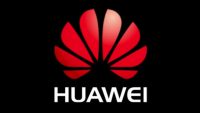Carriers in Japan, Taiwan and the United Kingdom have stopped accepting pre-orders for Huawei’s newest 5G-enabled smartphones, fearful that the U.S.-China trade war could impact the functioning of the phones. Google has stated it would not permit Huawei to use its latest Android operating system and future phones will lose access to popular Google services. ARM, Huawei’s chip supplier, confirmed it has ceased doing business with the Shenzhen-based Huawei. If the U.S. Commerce Department does not issue a waiver, Huawei could be in serious trouble.
Bloomberg reports that, with regard to sales of handsets, Huawei leapt over Apple and is now challenging Samsung for the No. 1 position, but boycotts such as those from Japan, Taiwan and the U.K. could prevent its success. Britain’s BT Group, for example, “decided not to include Huawei phones in Britain’s first 5G network because of uncertainty over whether they could use Android.”

Vodafone also “paused pre-orders for the Huawei Mate 20X (5G) in the U.K.,” as did Dixons Carphone, Japan’s NTT DoCoMo, SoftBank’s YMobile, and Taiwan’s Chunghwa Telecom. CCS Insight analyst Ben Wood “estimates the next generation of phones will make up over 30 percent of the roughly 18 million devices sold in the U.K. market next year.”
“The problem is that even if all of this was fixed overnight … the uncertainty that it’s created is Huawei’s biggest enemy now,” he said.
Huawei’s marketing team has been assuring customers that, should Google’s system no longer be available, it or another company would provide an alternative. Although Huawei is a major provider for new 5G networks in Europe and elsewhere, “U.S. allies [are] under growing pressure to restrict Huawei.” BT chief technology officer Howard Watson noted that the Trump ban impacts “devices more than it does the radio access network.”
“There are also U.S. suppliers to Huawei radio access equipment,” he said. “That’s something we’re monitoring very closely as well.”
Wired reports that, on Wednesday this week, chip designer ARM announced it had severed ties with Huawei. The U.S. Department of Commerce could still issue a waiver, “and broader tensions between China and the US could otherwise resolve,” but if these things don’t happen, “it’s hard to see where Huawei goes from here.” Huawei was an early ARM adopter; its subsidiary HiSilicon “has made ARM-based systems-on-chips since at least 2012.”
Without ARM, Huawei “would need not only to redesign its own chips from scratch — a process that takes years — it would find itself cut off from the world’s most popular operating system.”
“All of the options are going to be painful,” said 451 Research chief analyst Eric Hanselman. “Changing out a core means you’ve got to do significant work not only in the silicon, but also in your software ecosystem. That’s not going to be simple.”
Huawei will be able to use its current ARM-licensed technology, but, over time, will be stuck with an outdated design and forced to develop its own core. “Every place where Huawei uses ARM IP would be impacted … all the way from embedded IP in tiny surveillance devices to large enterprise data center chips,” said Moor Insights & Strategy founder Patrick Moorhead.
Related:
Google, Intel, Other U.S. Tech Firms Stop Selling to Huawei, ETCentric, 5/21/19

No Comments Yet
You can be the first to comment!
Sorry, comments for this entry are closed at this time.